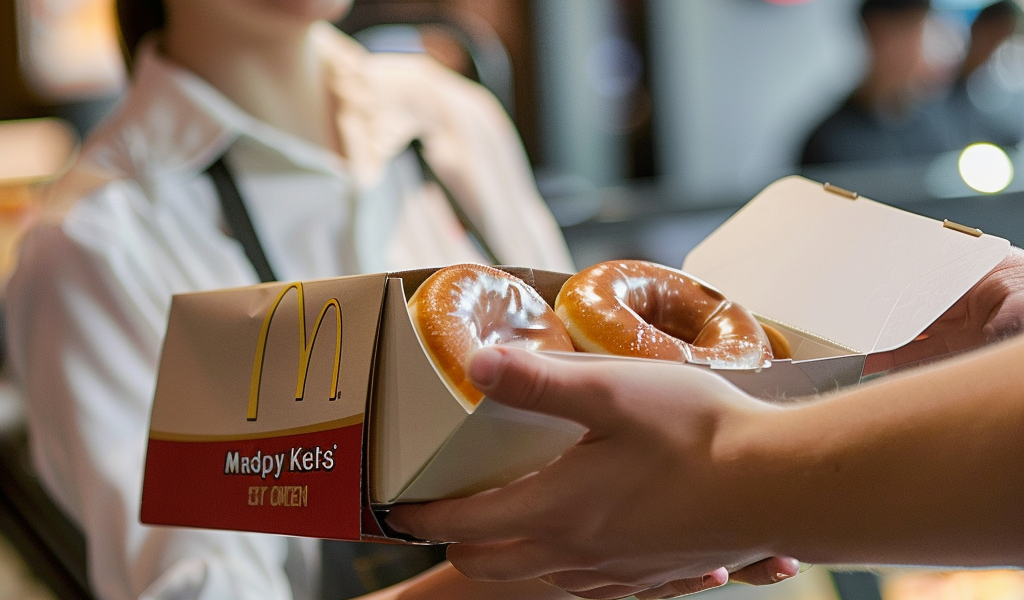McDonald’s has announced its plans to sell Krispy Kreme doughnuts at its restaurants nationwide by the end of 2026. The partnership expansion between McDonald’s and Krispy Kreme will see the doughnut maker’s products available at all of the burger chain’s U.S. locations within the next five years.
The rollout of Krispy Kreme doughnuts at McDonald’s will commence in the second half of this year, with the distribution expansion expected to take approximately two and a half years to complete. As part of the agreement, McDonald’s will serve as the exclusive fast-food partner for Krispy Kreme in the U.S.
Following the announcement, shares of Krispy Kreme experienced a significant surge, jumping 24% in morning trading on Tuesday. This surge is on track to mark the stock’s best day ever.
Krispy Kreme employs a ‘hub and spoke’ model to efficiently produce and distribute its treats. Production hubs, including stores and doughnut factories, dispatch freshly made doughnuts daily to retail locations such as grocery stores and gas stations.
The partnership with McDonald’s presents a substantial opportunity for Krispy Kreme to expand its market presence. Despite already delivering its doughnuts to 6,800 third-party stores as of December 31, the company aims to extend its reach to McDonald’s 13,500 U.S. restaurants, with plans to open 900 new locations nationwide by 2027.
Krispy Kreme CEO Josh Charlesworth expressed confidence in the company’s ability to service approximately 6,000 restaurants with its existing infrastructure, primarily through its doughnut shops, which have excess capacity. The partnership with McDonald’s will also enable Krispy Kreme to enter grocery and convenience stores that prefer national suppliers, thus enhancing the efficiency and productivity of its distribution network over time.
Moreover, the increased demand from McDonald’s and other new customers will allow Krispy Kreme’s production lines to yield higher volumes with minimal additional costs, as the company’s doughnut shops typically produce more than they can sell.





